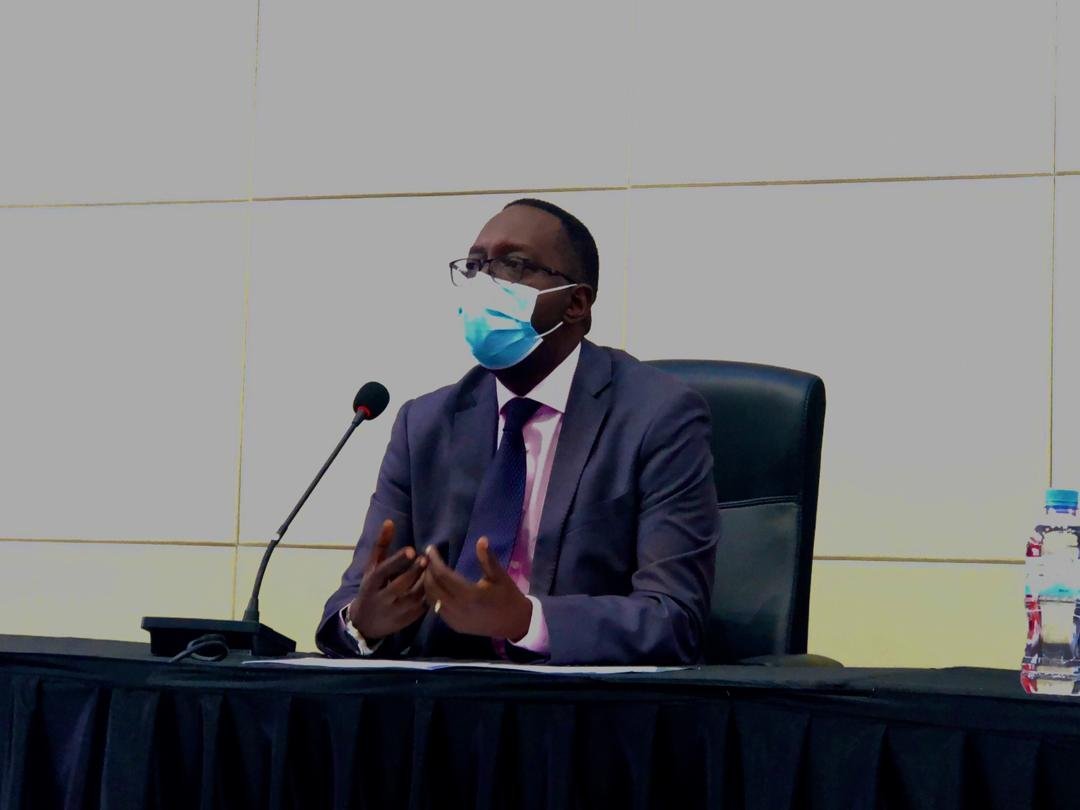
Rwanda’s health minister Dr Daniel Ngamije on Wednesday defended Rwanda’s tough handling of the COVID-19 compared to Burundi and Tanzania where governments there are not engaged in public campaigns against the virus.
In Tanzania and Burundi, no masks are worn, and there is also no public promotions of social distancing. Huge gatherings like concerts and sports games have been going on unhindered.
From July to October, there was a general election in Tanzania which was marked by massive rallies. Ealier in June, the same happened in Burundi.
In Uganda, a heated presidential campaign is taking place in preparation for polls in January. There are big rallies and processions held daily.
However, contrary to its regional neighborhood, Rwanda has taken an expectedly tough stance. Last night alone, 80 bars were uncovered with more than 300 revellers, yet there is a night curfew and bars have been banned since March.
Thousands of people have been arrested for things like not wearing masks, or not social distancing. Local authorities have collected hundreds of millions from fines of culprits.
The first lockdown between March and May led to loss of entire livelihoods for more than 60% of Rwandans or nearly 8m people, according to confidential figures the UK high commission in Rwanda shared with government in June.
Several people have been shot dead by police as it enforced control measures put in place by cabinet.
Globally, the EU and Britian have given preferential consideration for travellers coming from Rwanda, after their independent assessments found effective control measures had worked to control spread in Rwanda. Basically, the governments there are convinced the tough stance by Kigali has worked – which government of Rwanda has also used as vindication for its policies.
At a joint press conference this Wednesday, four government ministers and police spokesman appeared to explain the latest measures put in place to control a new infection wave of the virus. Among them is a renewed suspension of sports, social gatherings and national curfew changed from 10pm-4am, to 9pm-4am.
However, health minister Dr Ngamije had to grapple with an unexpected question in which a journalist suggested that the laxity emerging among Rwandans may be influenced by what they see in the media happening in Tanzania, Burundi and Uganda.
“As far as we are concerned, the World Health Organization has not declared any country free of COVID-19, and that is the basis of all the actions we have taken,” said Dr Ngamije.
“Without tangible research on COVID infections [and] deaths, which are unavailable anyway, we cannot base on what we see in television images showing football games, to determine that there is no COVID,” added the health minister.
“There can be football games, yet there are people in critical condition dying in hospitals. It is a completely different situation. No one should be misled by seeing full stadiums in whichever country, to think those countries have solved the COVID problem. There are other facts you may not be aware of.”

Rwanda’s border is closed since March, with only cargo trucks allowed in. Rwanda’s neighbors also still have their borders closed. Air traffic is operating regionally as as well as international.
In April, Tanzania’s President John Pombe Magufuli shocked the world with revelations that his intelligence apparatus had sent samples of pawpaw and vehicle oil which were found to have the COVID-19 virus.
He cast doubt on the efficacy of the test kits which were being used globally. Magufuli also revealed that his son had tested positive, but got well after consuming fruits and vitamins.
Since then, Tanzania stopped releasing figures of COVID infections. Up until today, there are no statistics, but government says it has contained the virus. The same is with Burundi.
In responding to the question about the virus situation in Rwanda’s neighborhood, health minister Dr Ngamije didn’t name any country and could be seen struggling to choose his words carefully – perhaps aware it could come back to haunt him if he said anything that could lead to a diplomatic crisis.
Meanwhile, Dr Ngamije also said a national lockdown was still on the table.
He said: “The lockdown is still an option. There is no doubt about that….if the lockdown remains the best option to contain this pandemic, it will be considered by the competent authorities,” before it is implemented.
It also emerged for the first time today about the scale of the virus infection among health workers in Rwanda. The health minister said, without giving numbers, that infected medical staff had been identified in Musanze and Rubavu districts, as well as the University teaching hospital Kigali (CHUK) and at King Faysal Hospital, the national referral facility.
Dr Ngamije also said currently there are six COVID-19 patients on ventilators at the Kanyinya Health Center, Kigali, but were not in extremely critical conditions. Kanyinya is the national referral for COVID.
In the cabinet meeting on Monday night, Muzanze district was placed under particular restrictions. The night curfew there begins 7pm to morning.
There has been influx of government departments to Musanze, from central government officials to high-level security personnel.
The health ministry says a random study was done nationally on different groups of people in different districts, and the findings showed infections were unusually high in Musanze district.
“You can imagine our teams stopped 100 people randomly selected on the streets of Musanze town and 13 percent of them had the virus,” said health minister Dr Ngamije.
At the press conference was also local government minister Prof Shyaka Anastase, Trade and Industry’s Soraya Hakuziyaremye, sports minister Aurore Mimosa Munyangaju, and police spokesman CP Jean Bosco Kabera.
Source: The Chronicles















